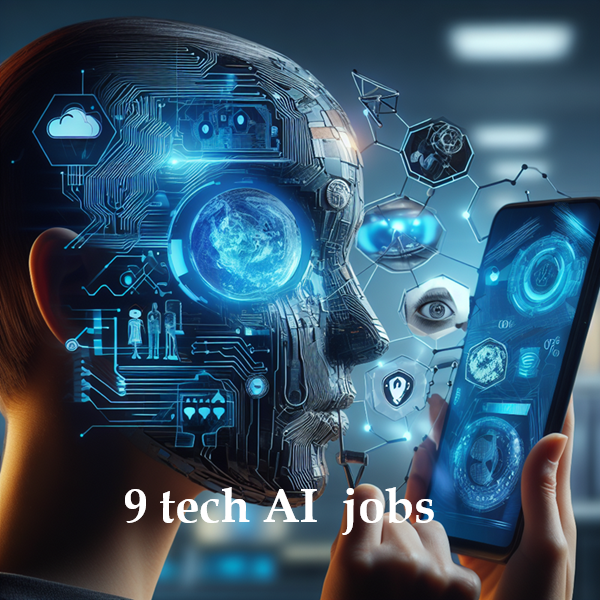9 tech AI jobs unassailable by AI

Artificial intelligence (AI) has completely changed the way we think about technology and data science in an era of fast digital transformation. But even with this speed bump, some computer industry job routes are still resistant to complete automation.
Emotional intelligence, creative problem-solving, and human intuition are all intrinsically tied to human role-playing, and they are still vital in an AI-dominated world.
The CEO and founder of Learnbay, Krishna Kumar, has released a list of tech jobs that AI is still unlikely to automate.
9 tech AI jobs >>>
- Data Science
- CYBERSECURITY PROFESSIONALS
- AI ETHICISTS
- SOFTWARE DEVELOPERS AND ENGINEERS
- USER EXPERIENCE (UX) DESIGNERS
- 'DevOps' ENGINEERS
- TECH PROJECT MANAGERS
- AI/ML RESEARCHERS
- DATA STORYTELLERS

9 tech AI jobs
(1) Data SciencePre-processing and data cleansing are two areas in data science where AI has automated many tasks. But fundamentally, data science needs a level of human creativity and intuition that cannot be programmed.
While AI is capable of processing large amounts of data, data scientists ask relevant questions, build models specifically for the task at hand, and interpret the results in a context that makes sense. The position requires cognitive and decision-making skills from humans that AI cannot entirely replace.
(2) AI ETHICISTS
AI ethicists are becoming more vital as AI has grown in popularity. These experts oversee the moral application of AI systems, guaranteeing their impartiality, openness, and respect for user privacy. They evaluate the risks, biases, and social ramifications that using AI may have. This position calls for an in-depth knowledge of human rights, ethics, and social norms—a viewpoint that goes beyond AI in and of itself.
(3) CYBERSECURITY PROFESSIONALS
Artificial Intelligence assists cybersecurity by spotting anomalous network activity or potential dangers. However, the job of cybersecurity experts is still crucial. They plan, analyze AI’s results, and respond inventively to threats that are always changing. Artificial intelligence is unable to replicate human psychology, comprehend the possible motives of cybercriminals, or think creatively.
(4) SOFTWARE DEVELOPERS AND ENGINEERS
Software developers now find AI to be a useful tool since it can automate testing, debugging, and code development. But only people possess the imagination needed to create cutting-edge software, comprehend user wants, solve problems, and make logical advancements in development. Moreover, human involvement is required due to ethical considerations in software development.
(5) USER EXPERIENCE (UX) DESIGNERS
User interfaces that are interesting and easy to use are the responsibility of UX designers. To guarantee a flawless user experience, they must comprehend aesthetics, human psychology, and cultural quirks. A/B testing and data analysis are two areas where AI might be helpful, but human qualities like empathy in design and inventiveness in user experience creation are invaluable.
(6) 'DevOps' ENGINEERS
Developing teamwork between development and operations teams and improving the development process are the main goals of DevOps engineers. In this function, human interaction and interaction are vital, even though AI can automate certain aspects of the software development process.
(7) TECH PROJECT MANAGERS
Project managers are essential, but AI may help with risk management and project tracking. They oversee resource management, guarantee teamwork, troubleshoot issues, and make critical judgments based on their intuition and expertise. The essential human leadership, negotiating, and conflict-resolution abilities are lacking in AI.
(8) AI/ML RESEARCHERS
Researchers in AI and Machine Learning (ML) are at the forefront of AI development. While AI can aid in optimizing models, human curiosity, inventiveness, and critical thinking are still necessary for the basic research that propels the development of AI and ML. AI is not able to question, conjecture, or innovate in the same way that a human researcher can.
(9) DATA STORYTELLERS
Experts in weaving a compelling narrative out of complicated data insights are known as data storytellers. To display data in a way that is both engaging and easy to grasp, they need to have a keen understanding of their audience as well as creativity and context. AI may manage data, but it is unable to narrate a tale that people find compelling.




